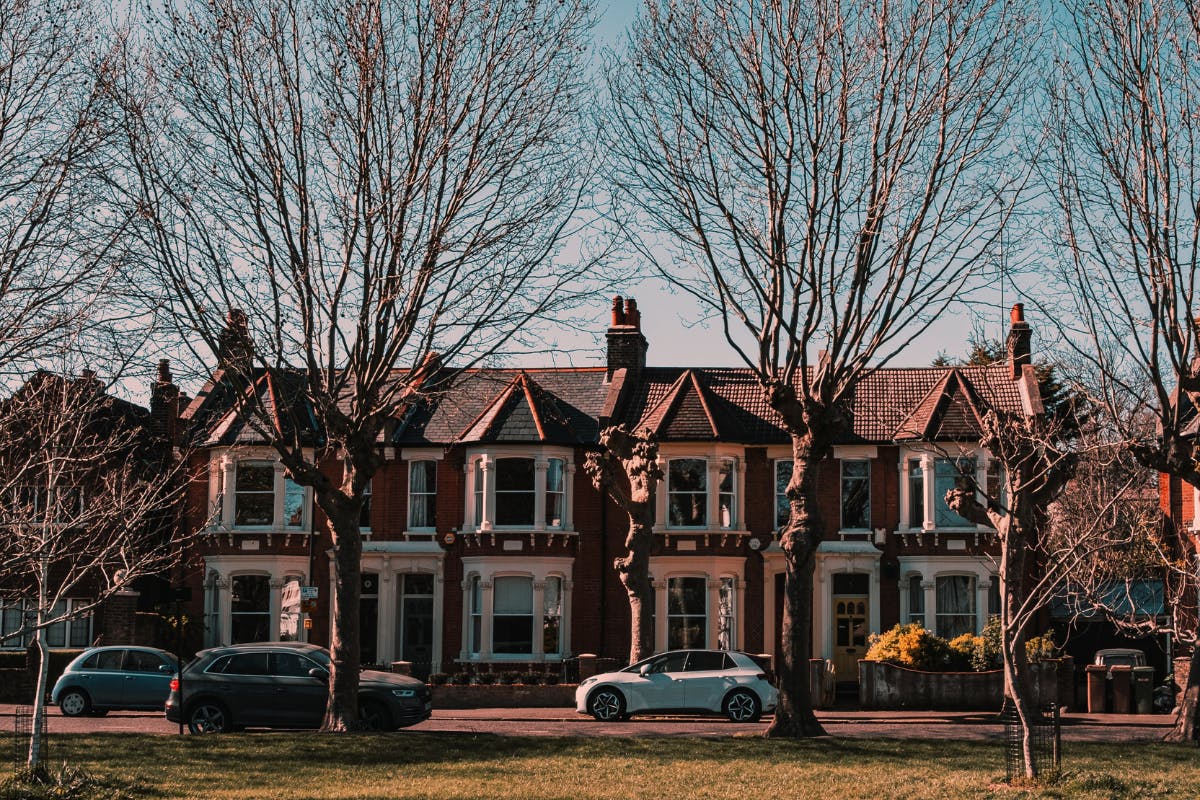The homebuying mistakes first-time buyers make (and how to avoid them)
You’ve spent months scrolling through Rightmove, saving as much as possible, and imagining yourself. To help you avoid the pitfalls, we’ve put together five of the most common mistakes first-time buyers make, counting down to the one that trips people up most often.

Key Takeaways
- Don’t just go straight to your bank. Compare the whole market or speak to a mortgage broker to get the best deal.
- If you’re rejected for a mortgage, don’t give up! There are other lenders and schemes that could help.
- Check and improve your credit score before applying, as it can make a big difference to your mortgage eligibility.
- Remember, your deposit isn’t the only cost. Factor in fees, charges, and affordability checks to avoid surprises.
- Explore all your options, from government schemes to family support, before ruling yourself out of homeownership.
5. Going straight to your bank
When you’re ready to apply for a mortgage, it can be tempting to go straight to the bank you’re most familiar with as this can seem like the easiest option. But heading straight for your bank can come at a cost. For starters, those loyalty rates might not be as competitive as the rates offered by less familiar banks.
Even a small difference in interest rates can add up over time, leading to higher monthly repayments and potentially costing you thousands of pounds more over the course of your mortgage term.
A comparison website is a decent starting point, but it won’t show you everything. A mortgage broker will compare hundreds (or in our case, thousands) of mortgages from a wide range of lenders. Some of these deals can only be accessed directly through a broker, so they won’t even show when you type your details into a comparison website.
Want to see what rate you could be offered without applying? Create a free Tembo plan to compare your eligibility to 20,000 mortgages and a range of budget-boosting schemes in seconds. Get started here
4. Giving up after the first rejection
Applying for a mortgage and getting rejected can hurt, but it doesn’t necessarily mean you’re “unmortgageable.” There are lots of reasons a mortgage application might be rejected. Maybe you don’t quite meet a lender’s affordability criteria, your credit score needs some attention, or your income is unpredictable.
Plus, getting rejected by one lender doesn’t mean you’ll necessarily be rejected by them all. An expert mortgage broker like us can help you figure out what went wrong and improve your chances next time. They’ll also know which lenders have more flexible criteria, and can help identify any affordability challenges before you reapply.
The important thing is not to give up after one setback. There’s nearly always another route to explore!
Learn more: What can stop you from getting a mortgage?
Make home happen with the UK’s Best Mortgage Broker
At Tembo, we specialise in helping the next generation get on the ladder. We’re experts in alternative buying schemes, and can compare your eligibility to over 20,000 mortgages. Create a free Tembo plan to see what options are open to you without applying.
3. Not paying enough attention to your credit score
If you’ve never needed to borrow money before, your credit score might not be something you’ve ever had to think about. But when you apply for a mortgage, it’s one of the first things a lender will check, and it can make or break your chances of being approved.
That’s why it’s worth checking your credit score early. With CheckMyFile, you can see your credit history from three credit agencies instead of one - Experian, Equifax and TransUnion. So it's easy for you to spot any issues which could be affecting your credit score.
Learn more: 7 financial red flags that mean you’re not ready to buy a home yet (and how to fix them)
2. Only thinking about the deposit
When you’re saving for your first home, it’s easy to focus solely on the deposit. After all, it’s one of the biggest (and the most talked-about) obstacles standing between first-time buyers and their dream home.
But even once you’ve saved a deposit, the challenges don’t end there. You could have a deposit of 20% or even 30% of the property’s value, only to struggle to get a mortgage big enough for the home you want. This all boils down to lenders’ affordability criteria, which determines how much you can afford to borrow without putting yourself under too much financial pressure.
Each lender will have their own methods and criteria for assessing a borrower’s affordability, but most will multiply your income by a set figure (usually 4.5) to determine the maximum amount they’re willing to lend you.
So, if you earn £30,000 a year, for example, you could expect to borrow £135,000 for your first home. If that’s not enough to get on the property ladder, don’t give up. Some lenders are willing to offer a mortgage of 5 or even 6x your income, so it’s a good idea to speak to a broker to weigh up your options.
Keep in mind that your income isn’t the only factor which influences what a lender will offer you for a mortgage. Things like your outgoings or outstanding debts also have an impact. You can find out more in our blog on mortgage affordability.
Now you’ve got a better idea of how affordability works, there’s something else you need to think about besides your deposit and that’s fees and charges. Your deposit might be the biggest cost, but you’ll also have to pay conveyancing fees, mortgage product fees, valuation and survey costs, moving expenses, and in some cases, stamp duty. So make sure you budget for these costs before you leap into the unknown.
So now it’s time for the biggest mistake we see budding homebuyers make, and that’s…
1. Not exploring your options
Many first-time buyers don’t even get the chance to make the mistakes above because they assume homeownership is out of reach and so they don’t even try. It’s true that in many ways, buying a house is more challenging than ever. But there’s more help for first-time buyers than you might think. And we should know, as it’s our realm of expertise.
For example, open a Lifetime ISA and for every £4 you save, you’ll get an extra £1 from the government. You can save up to £4,000 each tax year in your LISA, meaning you’ll get up to £1,000 bonus each time you max out your account.
And if you’re buying with a partner who's also a first-time buyer, you can open a LISA each, effectively doubling the government bonus. At Tembo, we offer the market-leading Cash Lifetime ISA. After 5 years of saving into a Tembo Cash Lifetime ISA, you could get hundreds more in your pocket than the next best rate on the market.
Save with the market-leading Cash Lifetime ISA
Save up to £4,000 each tax year and get a free 25% bonus on top of your savings, up to £1,000. Plus, with the Tembo Cash Lifetime ISA, you'll earn 3.8% AER (variable) on your savings - that's hundreds more in interest towards your house fund vs saving with the closest competitor!
Lifetime ISA withdrawals for any purpose other than buying a first home (up to a value of £450,000) or for retirement incur a 25% government penalty, meaning you may get back less than you paid in.
If you have family members who want to help you buy a home but they can’t afford to gift you a deposit, there are other ways to support you. They could act as a guarantor on your mortgage or use their property’s equity to top up your deposit, for example.
If saving a big deposit feels impossible, you may be able to buy with as little as 5%, through schemes like the Mortgage Guarantee Scheme or Deposit Unlock for new builds. Shared ownership can reduce the amount you need to save even further by letting you buy a share of a property and rent the rest.
Ultimately, the biggest mistake is ruling yourself out before you’ve explored what’s possible. With the right plan (and the right advice), you might be closer to owning a home than you think!






